Call for action: save lives and heal communities through increased services
FOR IMMEDIATE RELEASE
November 30, 2023
PORTLAND – As state lawmakers continue holding hearings on how to address the addiction crisis in our state, addiction service providers from across Oregon joined advocates today in calling for Oregon lawmakers to increase services at every point of service delivery. The root cause of the addiction crisis is lack of prevention and Oregon’s chronic lack of investment in treatment services, as addiction treatment experts, providers, and members of law enforcement who spoke to the Oregon legislature’s Joint Committee on Addiction and Community Safety Response in recent months have made clear. According to a January 2023 report from the OHSU-PSU School of Public Health, there is a 49% gap between the amount of substance use disorder treatment that is needed and what is currently available in Oregon.
Oregonians with addiction are largely unable to access detox services, treatment, recovery housing, and the culturally appropriate, wraparound services necessary for recovery. This has created a crisis in our communities, neighborhoods, and families that demand action that cannot be solved by Measure 110 alone.
With Measure 110 funding, Recovery Works Northwest has opened a detox facility in Portland, a treatment clinic in Newberg and expanded services in three counties. But the need for treatment services from emergency response to detox to housing far outstrips what’s available, and Recovery Works isn’t able to serve everyone who needs help. Media reports also recently showed that in downtown Portland, 58% of people who access Hooper Detox, for example, are released back to the streets and Hooper has to turn away as many people as it serves, some 200 people a month.
“Too many people are caught in a cycle of despair without a path off the streets because of waiting lists and backlogs for treatment service access,” says Joe Bazeghi, Director of Engagement for Recovery Works Northwest. “Oregon’s behavioral health system is underfunded, understaffed and unavailable to people who need help. Lawmakers should be looking at ways to expand services so that every single person who seeks treatment can get it instead of overburdening the already overcrowded criminal system with patients who are better treated elsewhere.”
While Measure 110 has expanded services with funding from the Cannabis tax, many more services are needed. The proposal released today includes investments, partnerships, and solutions that give Oregon lawmakers a public health-based approach for reducing suffering, improving livability, and saving lives, without returning to the failed war on drugs that disproportionately harms Black and brown Oregonians.
This policy roadmap calls on lawmakers to finally fund a full continuum of care that will ensure that everyone who seeks treatment will receive it, is connected to the best level of care for their situation, and that no one is released from care back to the streets.
“There are two things we know about the addiction crisis in Oregon,” said Julia Mines, Executive Director of the Miracles Club in NE Portland. “One is that there are not enough recovery services available, which is creating a crisis on our streets. And two is that we shouldn’t expect the police to solve social problems like mental illness, homelessness, or addiction — and we cannot arrest our way out of these problems. It’s time for solutions that let mental health and drug treatment professionals help people who need and want treatment, freeing up police to focus on violent crime instead of implementing controversial policies that disproportionately harm Black and Brown communities and our houseless neighbors.”
The policy proposals include:
-
Address the addiction and overdose crisis, reduce public use and the cycle of despair in Oregon by funding the full continuum of care, including expanding investments in primary prevention and youth services, recovery and transitional housing, peer support and interventions to people in crisis, and more;
-
Strengthen partnerships between peers, law enforcement, and other first responders by expanding peer-based Street Outreach Teams to work in partnership with law enforcement, creating more pre-arrest diversion programs such as the successful CAHOOTs program in Eugene.
-
Increase livability by banning drug use on public transportation, increasing and funding regular street and community clean up, creating work programs for trash cleanup and neighborhood revitalization, and more; and
-
Unequivocally reject controversial recriminalization policies which will deepen racial disparities in drug arrests, increase the risk of overdose, and disrupt current treatment investments in Black, brown, and Indigenous communities harmed the most by the failed war on drugs.
CAHOOTS has team members trained on how to respond to mental health crises without badges or guns. They respond to nearly 12 percent of all local emergency dispatch calls in Eugene, freeing up police to focus on violent crime and get people connected to the care they need.
“It’s time we come together to move beyond scare tactics and fear mongering. Controversial and divisive ballot measures to repeal Measure 110 will not solve mental illness, homelessness, or addiction,” said Health Justice Recovery Alliance Executive Director Tera Hurst. “We know from 50 years of drug war policies that criminalization didn’t work. Our policy roadmap provides solutions and a real path forward to deal with the root causes of addiction, expand care, and treat those struggling with addiction as patients worthy of help, not criminals needing punishment.”
The HJRA 2023 Policy Roadmap will be presented to the Joint Committee on Monday, December 4th.
###
